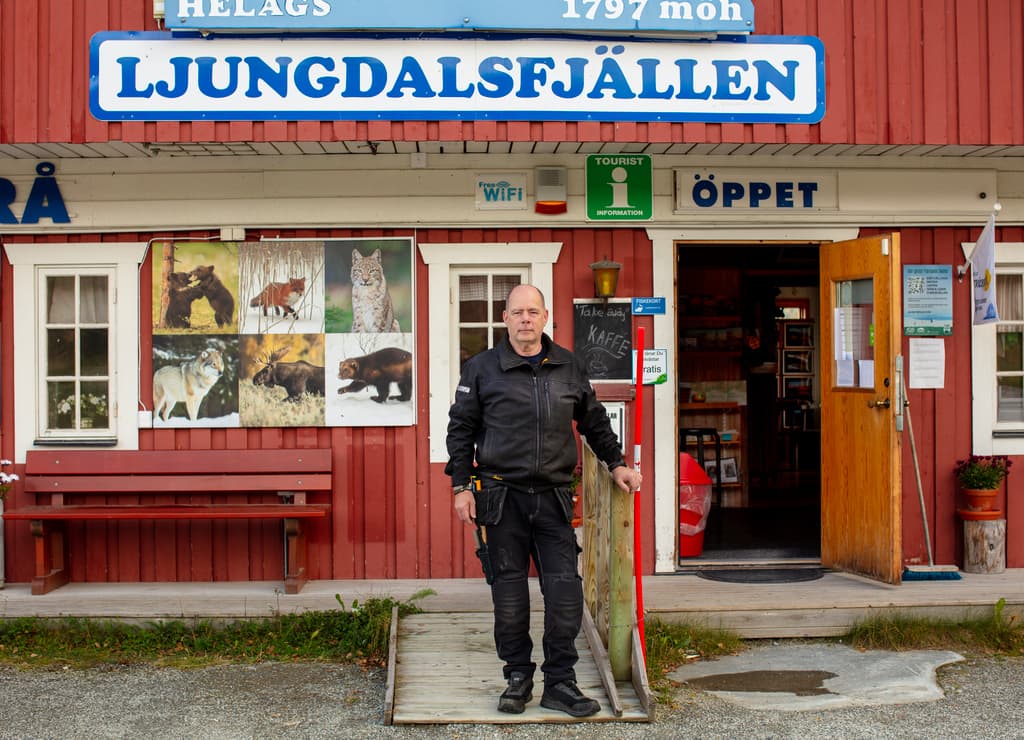The Swedish Tourist Association (STF) and the Sami villages in Jämtland reached an agreement in August last year, at the request of the County Administrative Board, which meant that STF would close parts of its operations to avoid disturbing the reindeer in the area.
The summer season was shortened, the number of beds was reduced, and Gåsen's mountain hut was closed. STF had around 40,000 guest nights at the accommodations they operate in the Jämtland mountains last year, and have counted on 8,000 fewer guest nights this year – which the statistics so far indicate.
We are roughly in the range we budgeted for, says Maria Ros-Hjelm, Secretary-General of STF.
The changes led to misunderstandings among visitors, and STF has received many questions about what applies, says Ros-Hjelm.
"Living on tourism"
In the village of Ljungdalen near Helagsfjället, the changes have had effects, according to John Regouw, Chairman of the Tourist Office in Ljungdalen. The number of cars in the parking lot has decreased by 11 percent from January 1 to July 31. The proportion of cottages rented out by the tourist office has decreased by 18.5 percent.
We live on tourism to 95 percent, from shops to craftsmen and restaurants.
Johanna Öhman runs the Helags pension in Ljungdalen. She feels that the pandemic – when tourism increased sharply – influenced the decision. Both Öhman and Regouw wish that the tourism industry had been involved in the decision.
Ros-Hjelm understands the feeling of wanting to be involved, but there were many actors who would have wanted to be part of it.
But if we had had such a large dialogue, I'm afraid we wouldn't have reached our goal yet, and we had a tight deadline for when our land lease expired.
"Finding opportunities"
The pandemic figures did not form the basis, Ros-Hjelm argues. In 2019 – before the pandemic – the first signals came from the County Administrative Board that the terms of the lease would need to be discussed when it expired. She hopes that the changes will eventually lead to new opportunities for actors around Jämtland.
I hope and believe that in the long run, Ljungdalen will also find opportunities in the changes we make. But I understand that we still have a way to go.
Micke Hagman, restaurant manager for Restaurangen in Ljungdalen, has not noticed a decrease in tourism. On the other hand, fewer cottage owners have vacationed due to the bad weather in July. They are the most important guests, he believes.
They spend months here every year. They refuel at the gas station, go to restaurants, rent snowmobiles, and so on.
The summer season is being shortened. The mountain huts and mountain stations are opening later, to avoid disturbing the reindeer during the sensitive calving period.
Most stations opened on July 1 this year, with the exception of Sylarna's mountain station, which opened on July 15.
Blåhammaren's mountain station no longer has a restaurant. The restaurant is closed, and the number of beds has been halved.
At Sylarna's mountain station, the number of beds has decreased by 25 percent.
Gåsen's mountain hut has been completely closed.
The restaurants at Sylarna and Helags will close by 2028. They will be replaced by a shop concept similar to the one at Blåhammaren.
Source: STF






